How to protect yourself from coronavirus: These are the most important tips from experts
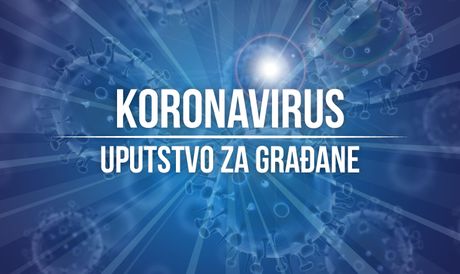
The first case of a coronavirus infection in Serbia is a 43-year-old man from Subotica, northern Serbia, who recently returned from Hungary.
The patient reported to the doctors on his own with symptoms of the disease. He had a fever, but according to Health Minister Zlatibor Loncar, he has been feeling well this morning. The patient is in isolation, and considering that he reported his problem in time, that makes it much easier to treat.
It was said during an unscheduled news conference organized by Zlatibor Loncar that there is no room for fear and panic and that it is most important to follow the advice of experts.
Epidemiologist Dr. Predrag Kon pointed out that it is very important that the first case has been discovered, although it was thought coronavirus would appear in Belgrade.
"The patient reported his problems himself. People who have been in contact with the patient will be quarantined, tested. Treatment is carried out in isolation. Other cases are expected to occur, especially in the capital. We are continuing our lives as usual and this thing is within our control. If it had been about a younger man who was more socially active, there would have been more work to be done," Dr. Kon pointed out.
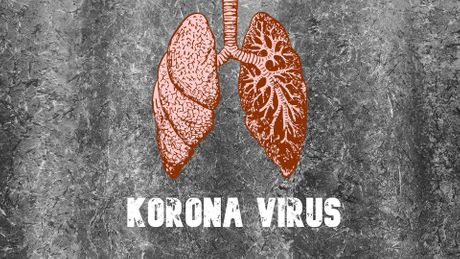
Although coronavirus is easily transmitted and threatens to grow into a worldwide epidemic, health experts say there is no room to panic.
The World Health Organization's main advice is that you can protect yourself against all respiratory viruses by washing your hands, avoiding people who cough and sneeze, and by making a conscious effort not to touch your eyes, nose and mouth.
Below are some ways you can help prevent a coronavirus infection:
Avoiding contact
Avoid close contact with people who have fever, cough and shortness of breath. Also, avoid big public gatherings and staying in a crowded area, such as concerts, movie premieres and sports matches.
Washing hands with soap
Medical professionals advocate that washing your hands is always a better option than sanitizing them, because by washing your hands you wash the virus off your skin. Gel sanitizers are trying to kill the virus that is already on your hands, so doctors advise to use soap and water on a regular basis. Also, use only paper towels instead of hand dryers.
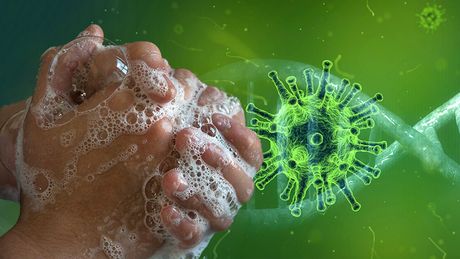
The WHO website says that spraying skin with alcohol and chlorine does not help if the virus is already inside the body. There are several chemical disinfectants that kill coronavirus on surfaces of objects - such as chlorine, bleach, ethanol, chloroform - but these must not be applied to the skin.
A temperature between 30 and 40 degrees reduces the infectivity of the virus. It's interesting that in one scientific study, the virus could not be removed by usual household cleaning products - only bleach managed to destroy the virus in just one minute.
Contactless payment
Like any surface that many people come into contact with, banknotes can transmit bacteria and viruses. The World Health Organization advises people to use contactless payment instead of cash as coronavirus can remain on a banknote for several days. However, the risk of getting infected via the wallet is no greater than by touching any other surface, such as doorknobs or credit cards.
Yet another video has appeared on the internet advising people that if they pay their supermarkets bills with payment cards, they must spray a disinfectant on the device to protect themselves from the virus.
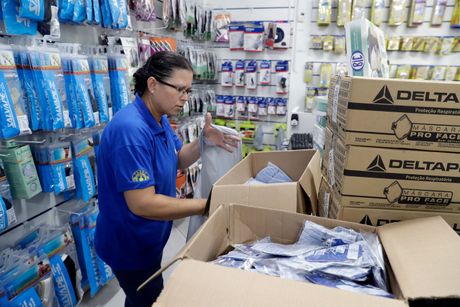
Cleaning personal items
Viruses can persist on glass and similar surfaces for up to 96 hours, meaning they can infect people for up to four days, regardless if this is about coronavirus or some even more dagerous infection. Some of the most dangerous microorganisms that can attach to your fingers and be carried on from there can be found on your phone, so the risk of infection can be increased. For that reason be sure to disinfect your phone every day, and the advice of some healthcare professionals is to clean even your jewelry and purses. It is especially important that you do not put your purse on the bed. You should wash your clothes immediately after taking them off.
Do not travel to hotspot areas
Do not travel to the areas where coronavirus has appeared without a dire need. If you still need to travel, be sure to increase your hygiene - wash your hands as often as possible and not for shorter than 20 seconds. When there is a risk of a deadly virus, seats, backrests, tables, seat belts and everything you touch while traveling should be particularly disinfected.
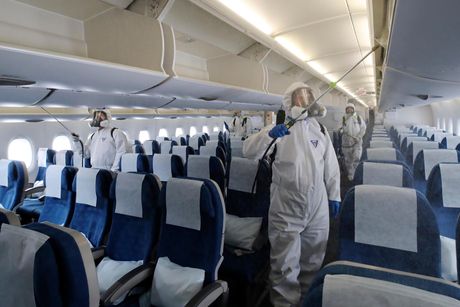
In order to avoid possible contact with infected persons, you should choose a seat by the window and thus have contact with fewer people than when sitting by the aisle, where you would come in contact with a large number of passengers and staff.
Authorities are constantly urging all travelers arriving from areas with coronavirus hotspots, who have symptoms like cough and fever, to call the number 064 894-5235 launched by the Serbian Ministry of Health.
You can follow all the news about coronavirus in our live blog. (In Serbian)
Video: 2 symptoms that may indicate you have coronavirus rather than seasonal flu
Video: Follow the guidelines of the Ministry of Health and reduce the risk of infection with coronavirus
(Telegraf.rs/K.M./B.K.)
Video: Zmija poskok pojavila se u Užicu
Telegraf.rs zadržava sva prava nad sadržajem. Za preuzimanje sadržaja pogledajte uputstva na stranici Uslovi korišćenja.

